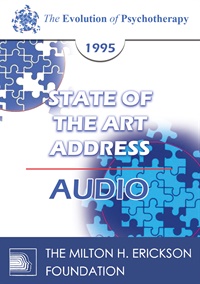
- Average Rating:
- Not yet rated
- Topic Areas:
- State of the Art Address | Children and Adolescent Therapy | Psychotherapy
- Categories:
- Evolution of Psychotherapy | Evolution of Psychotherapy 1995
- Faculty:
- Stella Chess, MD
- Duration:
- 56 Minutes
- Format:
- Audio Only
- Original Program Date:
- Dec 16, 1995
- Short Description:
- The implications of our investigations into the nature and influence of temperament will be· elaborated by the concepts of temperament-environment interactions, goodness of fit and parent guidance as well as guidance of adolescents and adults in psychotherapy. These formulations will be applied to psychotherapeutic clinical practice with children, adolescents and adults. A 22 minute illustrative videotape will be shown.
- Price:
- $15.00 - Base Price
Tags: Adolescents Children Psychotherapy
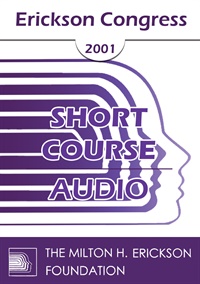
- Average Rating:
- Not yet rated
- Topic Areas:
- Short Courses | Children and Adolescent Therapy
- Categories:
- Erickson Congress 2001 | Erickson Congress
- Faculty:
- Scott P. Sells, PhD
- Duration:
- 1:05:42
- Format:
- Audio Only
- Original Program Date:
- Dec 06, 2001
- Short Description:
- IC01 Short Course 02 - Treating the Out-of-Control Adolescent: A Grounded Theory Inquiry Into Haley's Work - Scott P. Sells, PhD Treating adolescent with severe behavioral problems challenges even the most skilled practitioner. To address this difficult population a four-year process-outcome research project led to the discovery of a 15-step integrative treatment model. The process began with an intensive case analysis of Jay Haley's work using a grounded theory approach, The concepts that emerged were then tested in the field using outcome measures on 82 families over a two-year period. In this way, the blending of qualitative and quantitative methods in a single study yielded results that offered information that neither could provide alone.
- Price:
- $15.00 - Base Price
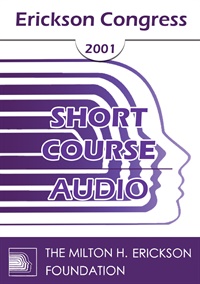
- Average Rating:
- Not yet rated
- Topic Areas:
- Short Courses | Children and Adolescent Therapy | Ericksonian Psychotherapy | Psychotherapy
- Categories:
- Erickson Congress | Erickson Congress 2001
- Faculty:
- Maria Escalante de Smith, MA
- Duration:
- 58:26
- Format:
- Audio Only
- Original Program Date:
- Dec 06, 2001
- Short Description:
- IC01 Short Course 29 - Using Ericksonian Psychotherapy with "Special Children" - Maria C. Escalante, MA, DDS
- Price:
- $15.00 - Base Price
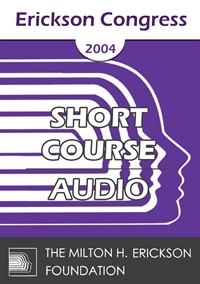
- Average Rating:
- Not yet rated
- Topic Areas:
- Short Courses | Brief Therapy | Children and Adolescent Therapy | Ericksonian Hypnosis and Therapy Techniques | Metaphors | Neuroscience
- Categories:
- Erickson Congress | Erickson Congress 2004
- Faculty:
- Carme Timoneda-Gallart | Silvia Mayoral-Rodriguez, PhD
- Duration:
- 1:08:26
- Format:
- Audio Only
- Original Program Date:
- Dec 02, 2004
- Short Description:
- Children's emotional problems are increasing. Ericksonian approaches provide good psychotherapeutical processes and efficient brief therapy for young people. A neuropsychological basis supports a coherent theoretic frame which explains the origin of emotional problems and clarifies why brief Ericksonian solutions are efficient.
- Price:
- $15.00 - Base Price
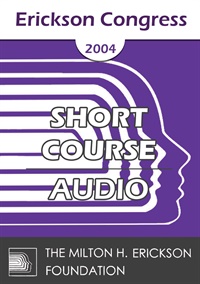
- Average Rating:
- Not yet rated
- Topic Areas:
- Short Courses | Children and Adolescent Therapy | Hypnotherapy | Hypnosis | Hypnotic Induction | Family Therapy
- Categories:
- Erickson Congress | Erickson Congress 2004
- Faculty:
- Antonio Bustillo, PhD
- Duration:
- 1:19:45
- Format:
- Audio Only
- Original Program Date:
- Dec 02, 2004
- Short Description:
- By tapping in on the child's natural tendency for curiosity and mastery, and utilizing the natural everyday hypnotic communication patterns within the family, it is possible to create a therapeutic "hypnotic space" within the family. The use of brief hypnotherapy from a family therapy frame can help the child/adolescent disengage from the individualistic problematic view, increasing the possibility for more lasting generative changes. Special attention will be given to the role of parents as active participants in this therapeutic process.
- Price:
- $15.00 - Base Price

- Average Rating:
- Not yet rated
- Topic Areas:
- Short Courses | Children and Adolescent Therapy | Ericksonian Hypnosis and Therapy Techniques | Abuse | Family Therapy | Social Issues
- Categories:
- Erickson Congress | Erickson Congress 2004
- Faculty:
- David Barnum | Wesley Crenshaw, PhD
- Duration:
- 1:19:45
- Format:
- Audio Only
- Original Program Date:
- Dec 02, 2004
- Short Description:
- Few cases are as difficult for therapists as those involving the intentional harm of one family member against another. This course provides participants the fundamentals of the model for treating family injustice developed by The Family Therapist Institute Midwest and presented in the new book, Treating Families and Children in the Child Protective System: Strategies for Systemic Advocacy and Family Healing. Didactic, participant discussion and videotape examples explain the model and its application.
- Price:
- $15.00 - Base Price

- Average Rating:
- Not yet rated
- Topic Areas:
- Short Courses | Children and Adolescent Therapy | Ericksonian Hypnosis and Therapy Techniques
- Categories:
- Erickson Congress | Erickson Congress 2004
- Faculty:
- Stefanie Badenhorst, D Litt
- Duration:
- 1:11:16
- Format:
- Audio Only
- Original Program Date:
- Dec 02, 2004
- Short Description:
- Utilization of the child's own frame of reference in creating change can allow the child, through an experiential learning process, to acquire more adaptive responses to situations. This interaction facilitates the re-synthesis process. A case study will explain ways to tailor treatment to individual needs.
- Price:
- $15.00 - Base Price
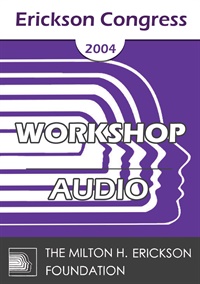
- Average Rating:
- Not yet rated
- Topic Areas:
- Workshops | Children and Adolescent Therapy | Metaphors | Storytelling
- Categories:
- Erickson Congress | Erickson Congress 2004
- Faculty:
- George Burns, MA, PsS
- Duration:
- 2:22:53
- Format:
- Audio Only
- Original Program Date:
- Dec 04, 2004
- Short Description:
- From a masterful storyteller, learn how to assess a client for metaphor therapy, how to tell stories that engage the client, how to make the stories metaphoric, and where to find sources for such tales. You will be guided through the step-by-step processes with illustrative case examples and simple, pragmatic exercises.
- Price:
- $15.00 - Base Price
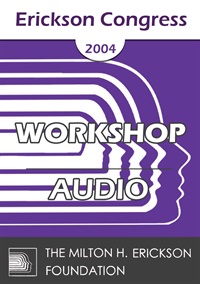
- Average Rating:
- Not yet rated
- Topic Areas:
- Workshops | Children and Adolescent Therapy | StoryPlay
- Categories:
- Erickson Congress | Erickson Congress 2004
- Faculty:
- Joyce Mills, PhD, LMFT
- Duration:
- 2:16:54
- Format:
- Audio Only
- Original Program Date:
- Dec 04, 2004
- Short Description:
- Founded upon the principles of Ericksonian Play Therapy and indigenous teachings, this workshop will provide therapists with creative tools for working with difficult or traumatized clients through StoryPiay®, a multi-cultural, heart-centered, indirective model of therapy that bypasses the quills of pathology and draws upon the natural inner resources, skills and strengths of each child, adolescent, adult or family member to generate healing, growth and change.
- Price:
- $15.00 - Base Price
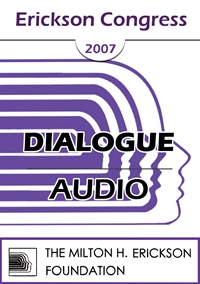
- Average Rating:
- Not yet rated
- Topic Areas:
- Dialogues | Children and Adolescent Therapy | Hypnosis
- Categories:
- Erickson Congress | Erickson Congress 2007
- Faculty:
- Joyce Mills, PhD, LMFT | Susy Signer-Fischer, Lic. Phil. Psych | Bernhard Trenkle, Dipl. Psych
- Duration:
- 1:03:06
- Format:
- Audio Only
- Original Program Date:
- Dec 08, 2007
- Short Description:
- IC07 Dialogue 04 - Hypnosis with Children & Adolescents - Joyce Mills, Ph.D., Susy Signer-Fischer, Lie. Phil., Bernhard Trenkle, Dipl. Psych.
- Price:
- $15.00 - Base Price
Please wait ...

